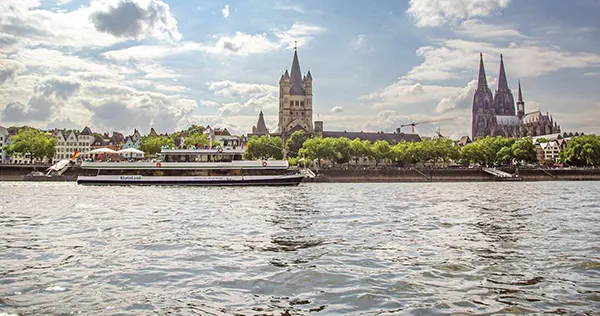
Therapeutic Tourism: How Travel Can Support Psychological Recovery
In recent years, the concept of therapeutic tourism has gained attention as people search for ways to combine relaxation, exploration, and mental health care. Travel has long been associated with physical rejuvenation, but its potential role in psychological recovery is becoming increasingly recognised. By engaging in purposeful journeys, individuals can reconnect with themselves, reduce stress, and find new perspectives on life’s challenges.
The Role of Travel in Mental Wellbeing
Travelling to new destinations offers a change of scenery, which is often a crucial factor in alleviating emotional exhaustion. A shift in environment can reduce mental fatigue, providing a fresh context that helps people distance themselves from daily pressures. For many, this is the first step toward restoring balance in their mental health.
Beyond relaxation, therapeutic tourism encourages travellers to participate in activities that promote mindfulness and self-reflection. Examples include wellness retreats, yoga camps, and trips that involve spending time in natural landscapes. Such experiences have been shown to lower stress hormones and support emotional regulation.
Moreover, travel can foster social connections. Meeting new people and engaging with different cultures often brings a sense of belonging and shared experience, which plays a vital role in combating loneliness and supporting psychological recovery.
Evidence-Based Benefits of Therapeutic Journeys
Scientific research highlights the psychological benefits of travel, particularly in structured wellness-focused settings. Studies in psychology and psychiatry have shown that time spent in natural environments can reduce symptoms of anxiety and depression. Nature-based tourism, for instance, is increasingly used in mental health recovery programmes.
Another area of evidence points to the restorative effects of cultural tourism. Exposure to art, history, and new traditions can stimulate cognitive functions and enhance emotional resilience. Such experiences allow travellers to broaden their perspectives while simultaneously reinforcing personal identity.
Additionally, therapeutic tourism encourages physical activity, whether through hiking, swimming, or simply walking in a new environment. Physical exercise is closely tied to mental health, as it releases endorphins and improves overall wellbeing.
Popular Destinations and Programmes
Countries across Europe and Asia have developed strong reputations for therapeutic tourism. For instance, Scandinavian nations promote nature immersion experiences such as forest bathing and coastal retreats. These programmes are often designed in collaboration with mental health professionals, ensuring their effectiveness in psychological recovery.
In Asia, countries such as Thailand and India are recognised for their wellness retreats, which blend traditional practices like meditation and Ayurveda with modern approaches to therapy. These destinations attract people seeking a holistic approach to both physical and mental rejuvenation.
Meanwhile, in Southern Europe, spa towns and thermal centres continue to provide restorative experiences rooted in centuries-old traditions. Many of these programmes now integrate psychological support, offering a combined focus on body and mind.
How Travel Experiences Are Tailored for Recovery
Modern therapeutic tourism is not a one-size-fits-all solution. Programmes are tailored to address different aspects of psychological health, from stress reduction to overcoming trauma. Some retreats provide individual counselling sessions alongside group workshops, creating a balance between personal reflection and shared healing.
For those experiencing burnout, wellness centres often offer digital detox programmes, encouraging participants to disconnect from constant online communication. These structured breaks can significantly improve sleep patterns, focus, and emotional balance.
Travellers dealing with grief or major life transitions may find programmes that combine therapy with cultural immersion particularly effective. Guided sessions in such environments create opportunities to process emotions while embracing positive new experiences.

Future of Therapeutic Tourism
As awareness of mental health grows, therapeutic tourism is likely to expand further in the coming years. Travel operators are increasingly partnering with psychologists, wellness coaches, and healthcare providers to design experiences that deliver measurable outcomes for participants.
The rise of digital health tools has also influenced therapeutic tourism. Online consultations before and after trips allow participants to set realistic goals and track progress. This integration of travel with ongoing care adds continuity to psychological recovery.
Furthermore, sustainability is becoming a key factor in shaping the future of therapeutic travel. Many modern retreats focus on eco-friendly practices, ensuring that recovery experiences benefit not only the individual but also the environment and local communities.
Challenges and Opportunities Ahead
Despite its potential, therapeutic tourism faces challenges. Accessibility remains a major concern, as not everyone can afford specialised wellness retreats or long-distance travel. Expanding affordable options will be essential for making psychological recovery through travel widely available.
Another issue is ensuring that therapeutic tourism is based on credible, evidence-backed practices rather than commercial trends. Clear standards and collaboration with mental health experts are needed to maintain trust and effectiveness in this sector.
Nevertheless, the opportunities are significant. As society becomes more open to discussing mental health, therapeutic tourism can play a vital role in reducing stigma while providing tangible benefits. With careful development, it has the potential to become a cornerstone of global wellness culture in 2025 and beyond.






